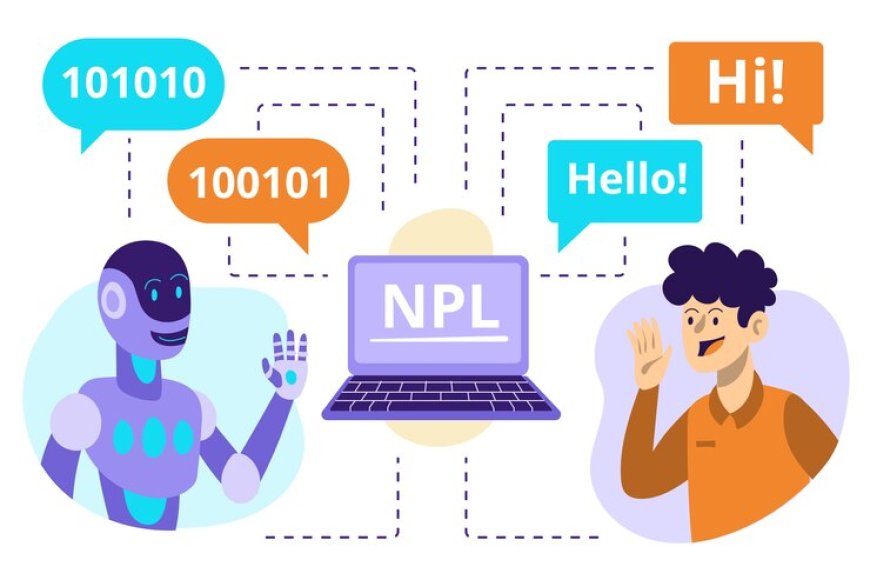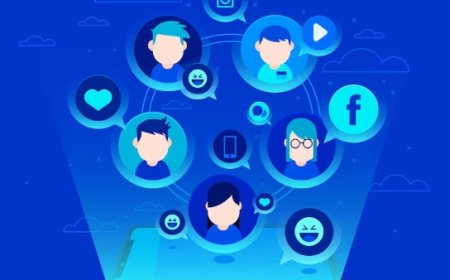The Evolution of Natural Language Processing
Discover the milestones, applications, and future implications of this transformative technology

Natural Language Processing (NLP) is an interdisciplinary field that focuses on the interaction between computers and human languages. It enables machines to comprehend, interpret, and respond to human language in a way that is both meaningful and valuable. With the help of NLP, computers can analyze and understand text and speech, making it possible for them to perform tasks such as language translation, sentiment analysis, and text generation. The evolution of NLP has brought about significant advancements in various industries, including healthcare, finance, and customer service.
One of the key goals of NLP is to enable machines to comprehend and generate human language effectively. This involves developing algorithms and models that can analyze and understand the structure, meaning, and context of text and speech. By doing so, computers can extract valuable information from vast amounts of textual data, leading to a wide range of applications and benefits.
Key Players in Natural Language Processing (NLP):
Researchers and Data Scientists: They are at the forefront of NLP research, constantly pushing the boundaries of language understanding and computational analysis.
Enterprises and Businesses: Many businesses leverage NLP to improve customer experience, optimize operations, and gain insights from textual data for decision-making.
Technology Companies and Search Engines: Companies like Google use NLP to better understand search queries, improve search results, and provide relevant information to users.
Developers and Engineers: They play a critical role in implementing NLP algorithms and models into various applications and systems.
Types of NLP Tasks:
-
Text Classification: This involves categorizing text into predefined classes or categories. It's used for sentiment analysis, spam detection, and topic labelling.
-
Named Entity Recognition (NER): NER identifies and classifies entities in text, such as names of people, organizations, locations, dates, and more.
-
Text Generation: NLP models like GPT-3 can generate human-like text, which is used in chatbots, content creation, and creative writing.
-
Machine Translation: Translating text from one language to another, such as Google Translate.
-
Question Answering: Systems that can answer questions posed in natural language by extracting information from a given text.
-
Speech Recognition: Converting spoken language into written text, commonly found in voice assistants like Siri and Alexa.
-
Topic Modeling: Identifying topics within a collection of documents, often used in content recommendation and information retrieval.
-
Text Summarization: Automatically generating concise summaries of longer texts.
Tips for NLP:
-
Data Quality: Ensure high-quality, clean, and well-labeled data. The success of NLP models depends on the data they are trained on.
-
Preprocessing: Text preprocessing, including tokenization, stop-word removal, and stemming, is crucial to prepare the data for analysis.
-
Choosing the Right Model: Select the appropriate NLP model or algorithm based on the specific task and data.
-
Fine-Tuning: Fine-tune pre-trained models to adapt them to your specific NLP task. This is often more effective than training models from scratch.
-
Evaluation Metrics: Use appropriate evaluation metrics for your task, such as accuracy, F1-score, or BLEU score for translation tasks.
-
Ethical Considerations: Be aware of ethical considerations, such as bias in data and models, and work to mitigate them.
-
Keep Abreast of Developments: NLP is a rapidly evolving field. Stay updated with the latest research and technologies.
-
Experimentation: NLP often requires experimentation and iterative model improvement. Don't be afraid to try different approaches.
-
Resource Management: NLP models can be resource-intensive. Consider hardware and computational resources for training and inference.
By understanding the types of NLP tasks and following these tips, you can navigate the challenges and harness the power of natural language processing effectively.
How can one become proficient in NLP, & what skills are required to excel in this field?
successful journey in NLP, follow these steps:
Programming Foundation: A strong foundation in programming languages such as Python and R is essential. Python, in particular, is widely used in the NLP community due to its rich ecosystem of libraries and tools. Learning the basics of these languages will enable you to work with NLP libraries and frameworks effectively.
NLP Libraries: Familiarize yourself with NLP libraries like NLTK (Natural Language Toolkit) and spaCy. These libraries provide pre-built tools and resources for various NLP tasks, making it easier to get started with text processing and analysis.
Machine Learning and Deep Learning: NLP often involves machine learning and deep learning algorithms. Understand the principles and techniques of these fields. You'll need to know how to preprocess text data, build models, and evaluate their performance. Libraries like scikit-learn and TensorFlow can be valuable here.
Linguistics and Language Structures: To excel in NLP, it's crucial to grasp the fundamentals of linguistics and language structures. This includes understanding syntax, semantics, and morphology. Linguistic knowledge will help you design better NLP models and applications.
Stay Updated: NLP is a rapidly evolving field. Stay updated with the latest advancements through research papers, online courses, and NLP conferences. Online platforms like arXiv and Coursera offer valuable resources. Engage with the NLP community to learn from experts and share your knowledge.
Practical Projects: Apply your knowledge by working on practical NLP projects. Building chatbots, sentiment analysis models, or text summarization tools can be great learning experiences. Real-world projects help you solidify your skills and create a portfolio to showcase to potential employers.
Ethical Considerations: Be mindful of ethical considerations in NLP, including bias in data and models. Understand the responsible use of NLP technology and contribute to building fair and unbiased NLP systems.
Thanks to Natural Language Processing (NLP), technology has taken a huge leap forward. NLP has transformed the way we interact with machines by enabling computers to understand, interpret, and generate human language. This has led to improved search capabilities and an enhanced user experience.
One of the most significant impacts of NLP is its role in search engines and information retrieval. NLP algorithms have made search engines more intuitive and efficient, allowing them to understand user queries better, interpret context, and provide more relevant search results. This has made online searches faster and more accurate, streamlining the way we access information.
In addition, NLP has become a crucial component in various artificial intelligence (AI) applications, with chatbots and virtual assistants being prime examples. Chatbots use NLP to engage in natural conversations with users, answer queries, and provide assistance. Virtual assistants like Siri and Alexa use NLP to understand spoken commands and perform tasks, making smart devices more convenient and functional.
The rapid evolution of Natural Language Processing (NLP) has completely transformed the way humans and machines interact, enabling computers to truly understand human language. This incredible progress has given machines the ability to comprehend, interpret, and respond to natural language with even greater accuracy and efficiency. By acquiring the necessary skills and dedicating yourself to learning, you can become a master of NLP and actively contribute to its dynamic growth. It's important to stay curious and well-informed about the latest trends and breakthroughs in NLP in order to keep up with its ever-changing landscape. By embracing the limitless possibilities that NLP offers, you can unlock countless opportunities for innovation and transformation across various industries, ultimately reshaping the future of technology and communication. effectively. With the right skills and dedication, anyone can become proficient in NLP and contribute to the advancement of this dynamic field. Stay curious, stay informed, and continue to explore the endless possibilities that NLP offers in our ever-evolving digital landscape.




































